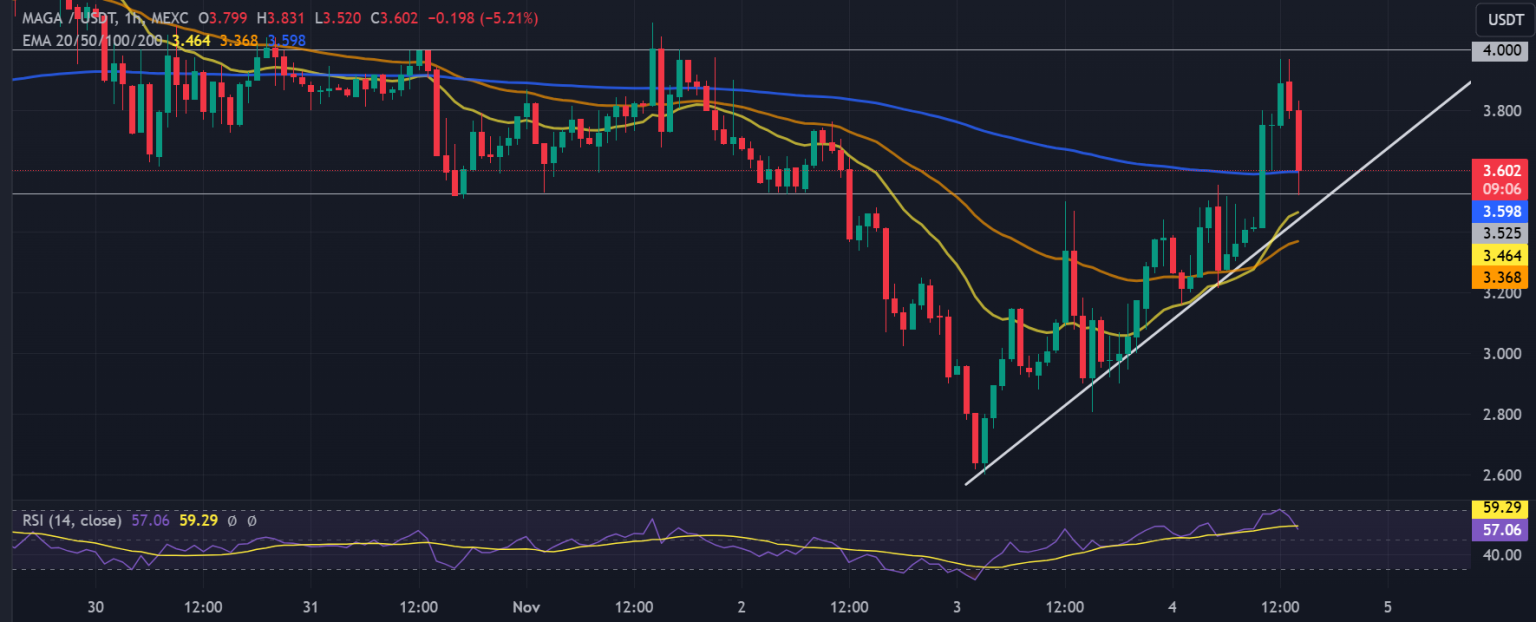Last updated:
 Why Trust Cryptonews
Why Trust Cryptonews
Ad Disclosure
We believe in full transparency with our readers. Some of our content includes affiliate links, and we may earn a commission through these partnerships.

The U.S. Department of the Treasury’s Office of Foreign Assets Control (OFAC) has sanctioned two individuals and one entity for laundering millions of dollars in illicit funds for North Korean agents.
The targeted network, led by a previously sanctioned North Korean agent, facilitated cryptocurrency conversions and money laundering to support the regime’s weapons of mass destruction (WMD) and ballistic missile programs.
US Treasury Crackdown North Korea’s Cybercrime Network, Freezing Millions in Illicit Funds
On Tuesday, the U.S. Treasury Department announced that it dismantled a North Korean money laundering network that facilitated the conversion of cryptocurrency into cash, enabling the regime to clean millions of dollars.
The network involves a front company in the United Arab Emirates (UAE) and two Chinese nationals, which North Korea used as a mask to exploit crypto assets to evade sanctions.
According to the Treasury, Chinese nationals Lu Huaying and Zhang Jian operated through a UAE-based front company, Green Alpine Trading, LLC, to cash out cryptocurrency generated from North Korea’s fraudulent IT operations and cybercrime activities.
In response, the U.S. government added Green Alpine Trading to its sanctions blacklist, along with Chinese nationals Lu Huaying and Zhang Jian, who were key participants in the operation since 2022.
According to the Treasury, the network reportedly collaborated with a North Korean agent, Sim Hyon Sop, to launder funds derived from “illicit revenue generation schemes. ”
From his base in China, Sim oversees schemes that disguise illicit funds, leveraging cryptocurrency and international accomplices to move money.
OFAC reports that since early 2022, Lu Huaying has played a critical role by converting cryptocurrency into fiat currency through cash-outs and money mule networks.
Between 2022 and September 2023, Lu facilitated several million dollars laundering on Sim’s behalf. The funds were used to purchase goods and services that benefit North Korea.
Similarly, Zhang Jian assisted in exchanging fiat currency and sometimes acted as a courier for Sim’s operations.
Green Alpine Trading provided financial and logistical support to Sim’s network, enabling the movement of illicit funds. It has now been sanctioned for facilitating North Korea’s efforts to circumvent global financial restrictions.
While specific details regarding the total volume of laundered funds were not disclosed, the operation is believed to have contributed to North Korea’s broader efforts to fund its nuclear weapons program.
UAE Assists in Disrupting North Korea’s Crypto Laundering Network: What Comes Next?
The United Arab Emirates played a role in the network’s takedown, according to the Treasury’s press release.
However, the current status of the sanctioned individuals, Lu Huaying and Zhang Jian, remains unclear.
North Korea has gained notoriety as one of the most aggressive state actors in crypto-related crime.
U.S. officials have accused North Korean operatives of stealing billions of dollars worth of cryptocurrency to support the country’s nuclear ambitions.
However, to make these digital assets useful, North Korea relies on laundering mechanisms to convert the crypto into traditional fiat currency.
US cybersecurity firm Recorded Future reports North Korean hackers stole over $3 billion in crypto from 2017 to 2023.
Recent concerns include Cosmos’ Liquid Staking Module, which allegedly involves North Korean developers and FBI warnings of malware-laden fake job offers.




